Lecture 1 Introduction: Grand Challenges
September 8, 2025
August 2025: 425.48 ppm
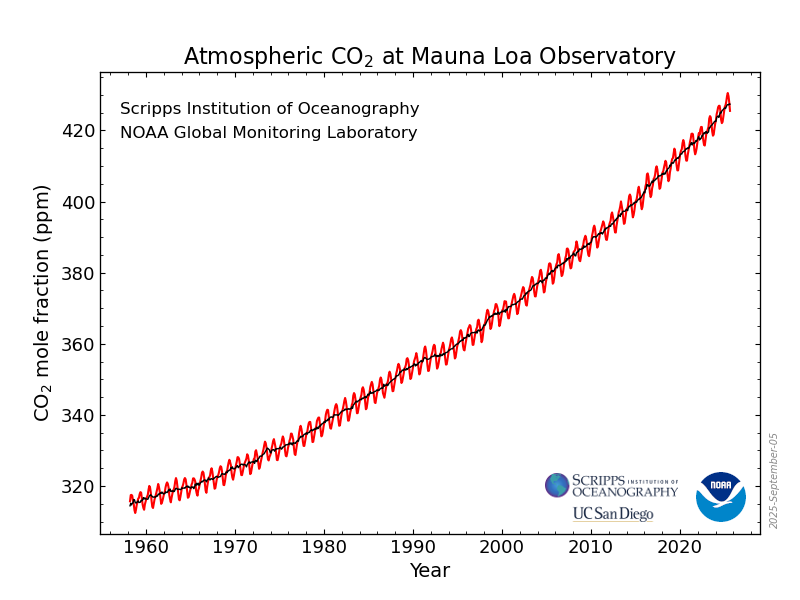
Source: NOAA
Welcome and icebreaker
- Rose: “something that is working well or something positive”
- Thorn: “something that isn’t working or something negative”
- Bud: “an area of opportunity or idea yet to be explored”
What brings you here?
- Concerned topics?
- Motivations?
- Dream jobs?
Not fast enough
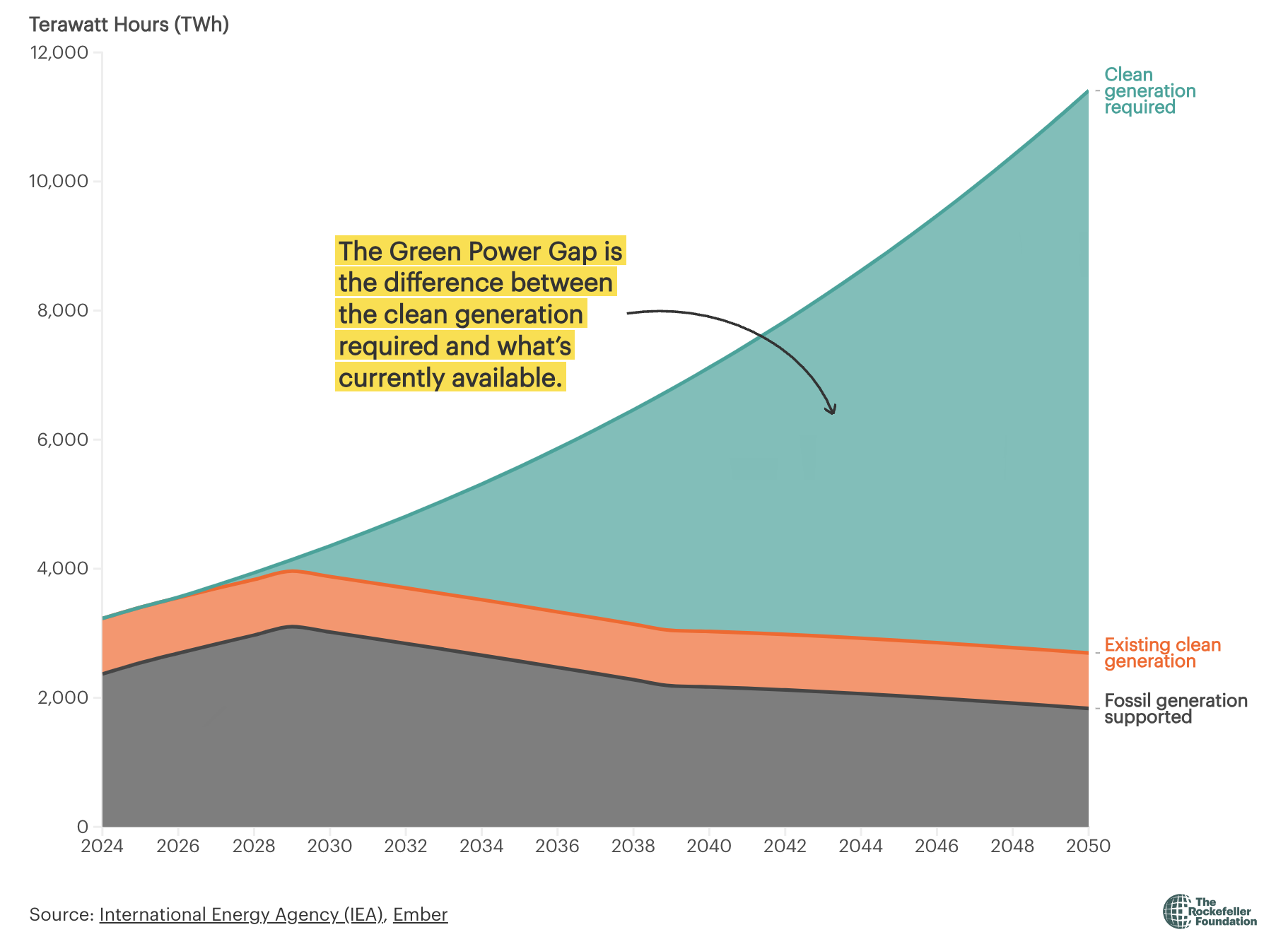
How the exponential growth of solar will change the energy sector and the economy?
Source: The Economist, Green Power Gap
~150 Gt Carbon Budget
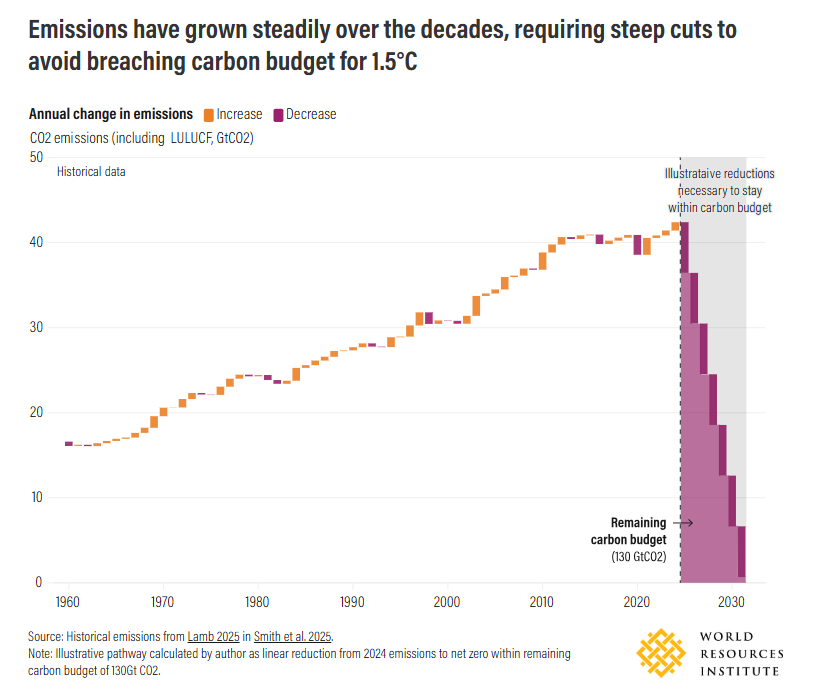
Source: WRI
Why PAF9187?
- Policy matters
- Technology innovation
- Social change
- Research
- Jobs
- Clean energy transition to achieve climate goals
Organization
- Syllabus
- Brightspace
- Course website: https://drganghe.github.io/energy-climate-policy/
- Policy responses (6): 30%
- Assignments (4): 20%
- Proposal: 10%
- Final presentations: 20%
- Policy memo: 20%
Climate guest speakers
- 9/15 – Mallory Flowers: Carbon disclosure–the intersect of public and private climate governance
- 9/29 – Shanru Tian: Optimizing the efficacy of leak detection and quantification for natural gas pipelines
- 10/6 – Karan Bhuwalka: Guiding what to build in the supply chain of energy technologies
- 10/14 – Beia Spiller: The transition to decarbonized transport sector
- 11/3 – Shuchen Cong: Identifying energy limiting behavior and its implications
- 11/17 – Claudia Villar-Leeman: NYC’s electric grid and role of energy storage
- 11/24 – Cecilia Springer: U.S. data center energy demand and emissions
- 12/1 – Luo Xu: Towards resilient and sustainable electricity grids under climate extremes
Contents
- Climate change
- Impact
- Mitigation
- Adaption
- Governance
- Energy systems
- Supply
- Demand
- Economics
- Technology
- Tools/skills
- Data analysis
- Economic analysis
- Energy-economy-environment (nexus)
A five points “climate haiku”
- It’s warming
- It’s us
- We’re sure
- It’s bad
- We can fix it

Source: Kimberly A Nicholas
An analytical approach
Data-driven, evidence-based, energy and climate policy
Using analytic tool to answer questions such as:
- What will be the climate future if we do nothing?
- What technology to invest to achieve our climate goal?
- What will be the impact to carbon emission of IRA?
- How NYS/NYC could achieve its climate goals?
Two quotes about models
George Box:
All models are wrong, but some are useful.
Albert Einstein:
Everything should be made as simple as possible, but not simpler.
Models can be useful
- Prediction/Projection
- Simulation
- Optimization
- Control
- Stochastic/dynamic
- Policy: Scenarios
Models help us think
Modeling is hard
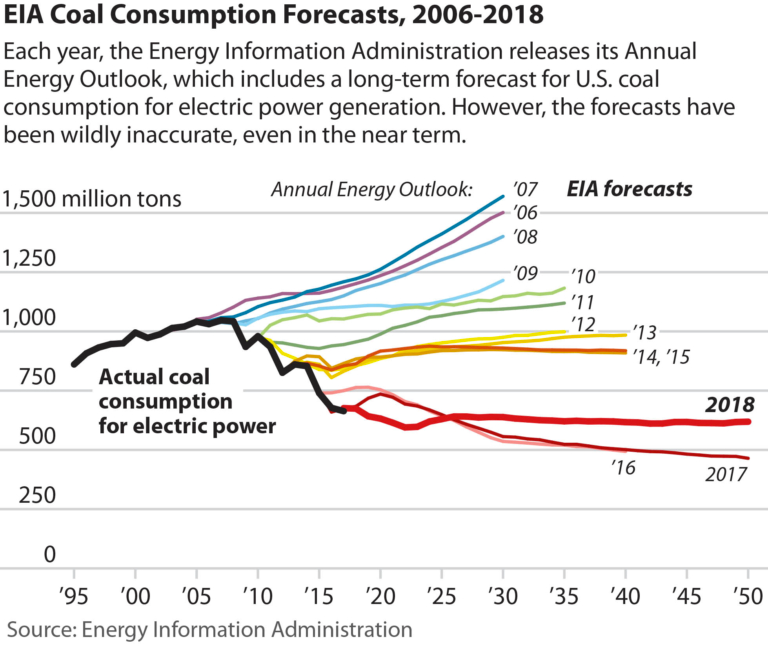
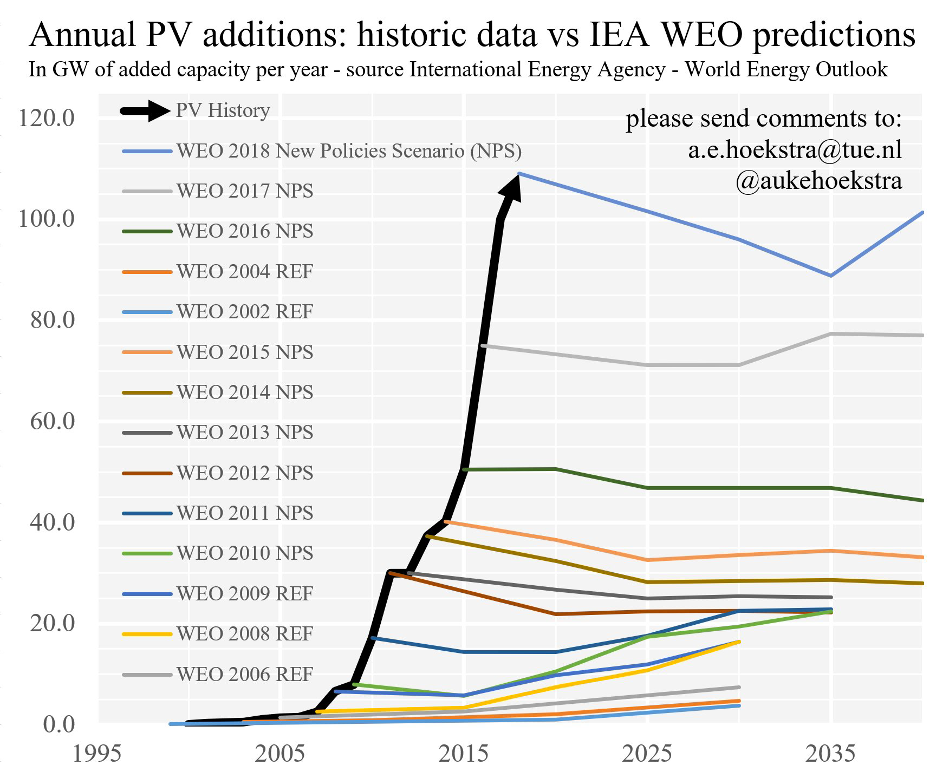
Why?
Risk: System structural change could break our core data and assumptions that are based on historical experience. Example: shale gas revolution.
Uncertainty: The exact timing and character of pivotal events and technology changes is unpredictable. Example: renewables cost changes, fussion.
Read more from Jon Koomey
Why: climate and energy systems are both complicated
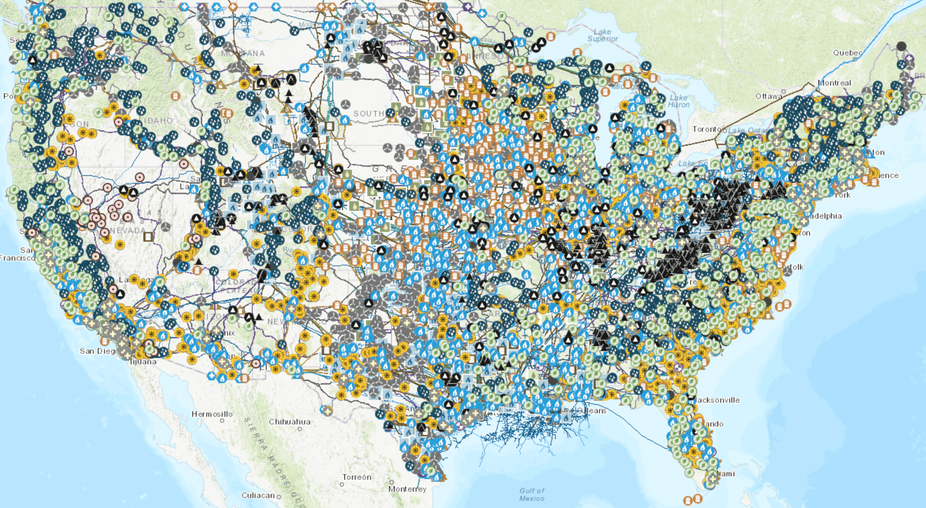
Source: EIA
The Energy Trillemma: Balancing trade-offs
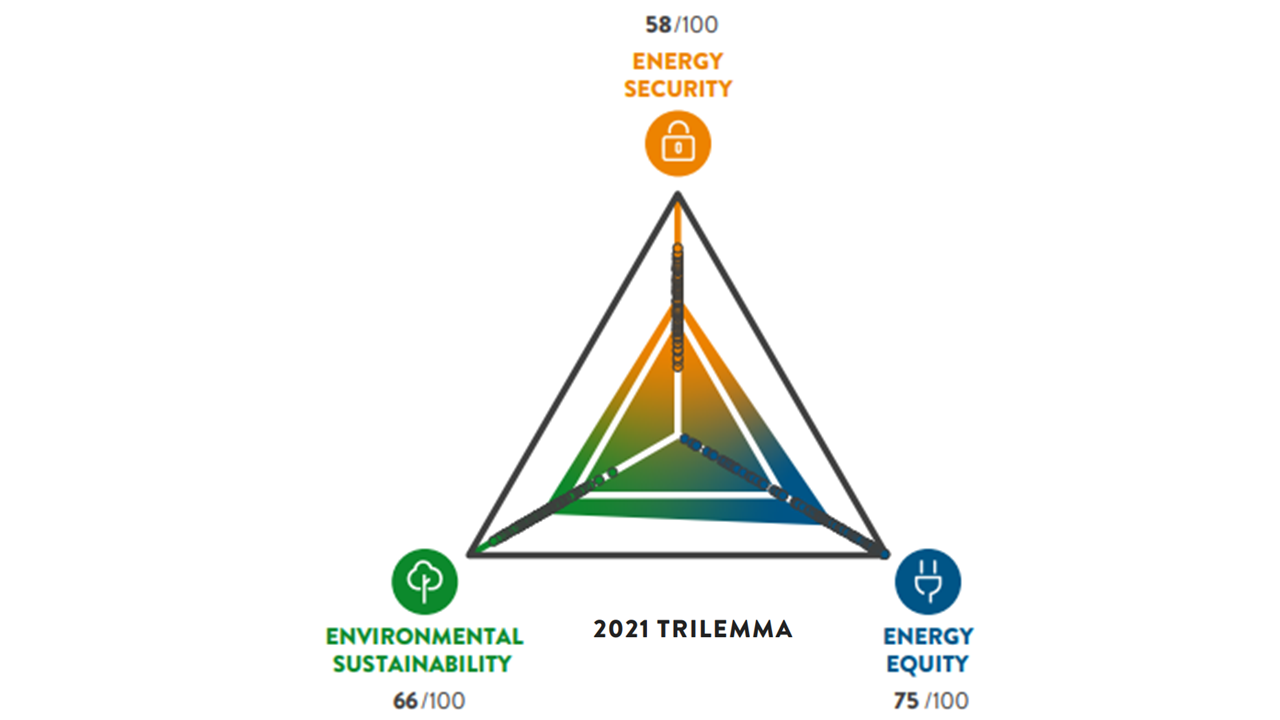
Energy security: Ensure reliable energy supply
Energy equity: Provide universal access to reliable, affordable, and abundant energy
Environmental Sustainability: Avoid environmental harm or climate impact
Those goals sometimes conflict with each other, and decisions has to make trade-offs between them
Source: World Energy Council
Energy, economy, and environment
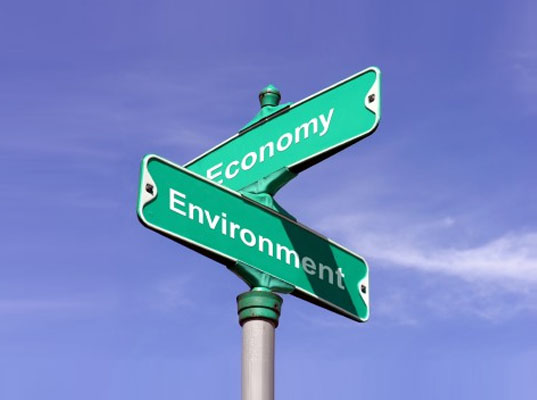
Economy: Decent living? Growth? Degrowth?
Environment: Emissions, ecosystems constraints/goals
Energy: Work within constraints
Source: ICMA
Energy great achievement
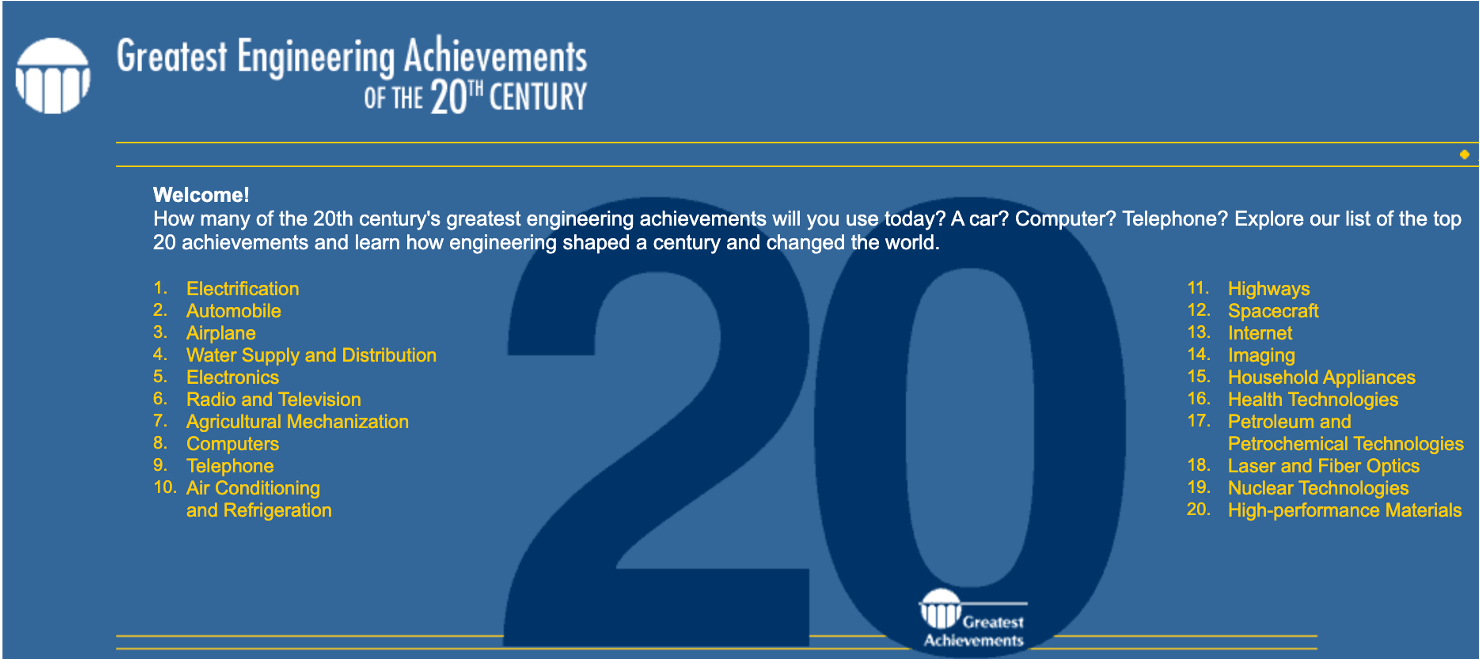
Source: National Academies
Energy and climate grand challenges
- Make solar energy affordable
- Provide energy from fusion
- Develop carbon sequestration methods
- Manage the nitrogen cycle
- Provide access to clean water
- Restore and improve urban infrastructure
- Advance health informatics
- Engineer better medicines
- Reverse-engineer the brain
- Prevent nuclear terror
- Secure cyberspace
- Enhance virtual reality
- Advance personalized learning
- Engineer the tools for scientific discovery
Source: National Academies
Public administration grand challenges
- Protect electoral integrity and enhance voter participation
- Modernize and reinvigorate the public service
- Develop new approaches to public governance and engagement
- Advance national interests in a changing global context
- Foster social equity
- Connect individuals to meaningful work
- Build resilient communities
- Advance the nation’s long-term fiscal health
- Steward natural resources and address climate change
- Create modern water systems for safe and sustainable use
- Ensure data security and privacy rights of individuals
- Make government AI ready
Energy grand challenges: SDGs
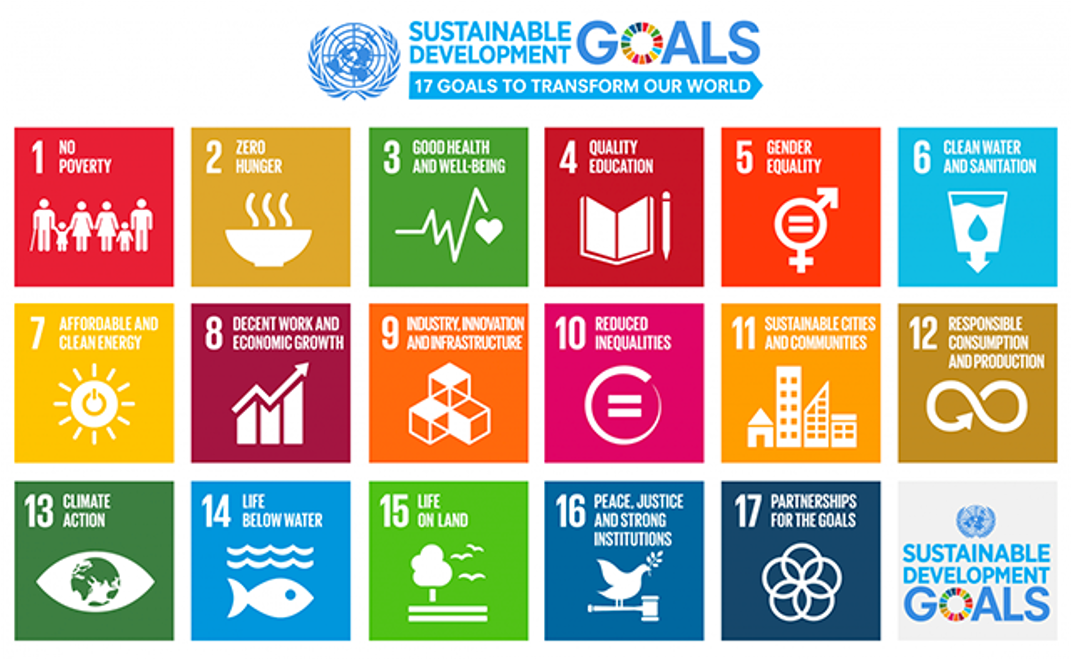
Source: UN
Energy grand challenges: net-zero
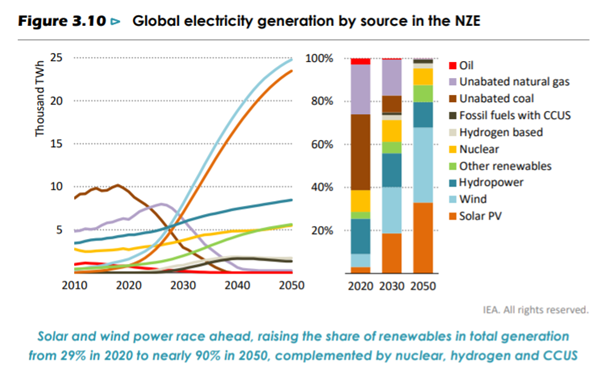
Source: IEA (2021)
Modeling can be useful/insightful (an example)
- Build the structure
- Demonstrate the relation
- Visualize the changes
- Inform the impacts
Renewables are achieving grid parity: a structural change
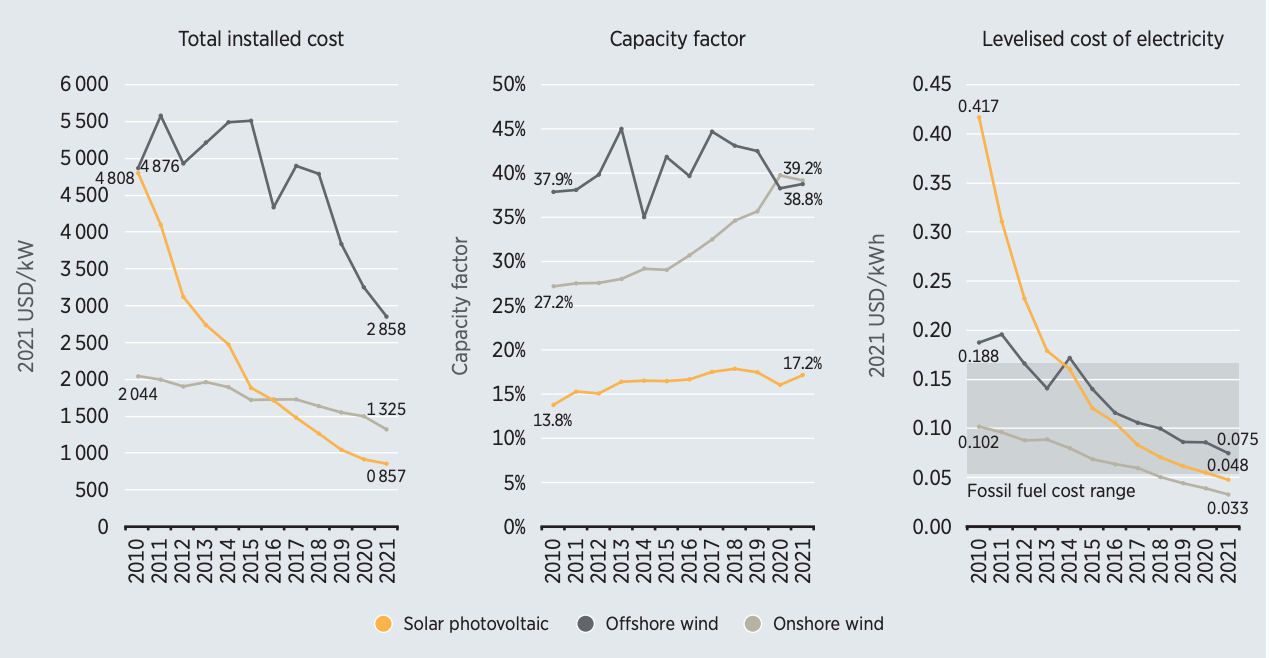
Source: IRENA (2021)
Implications are profound
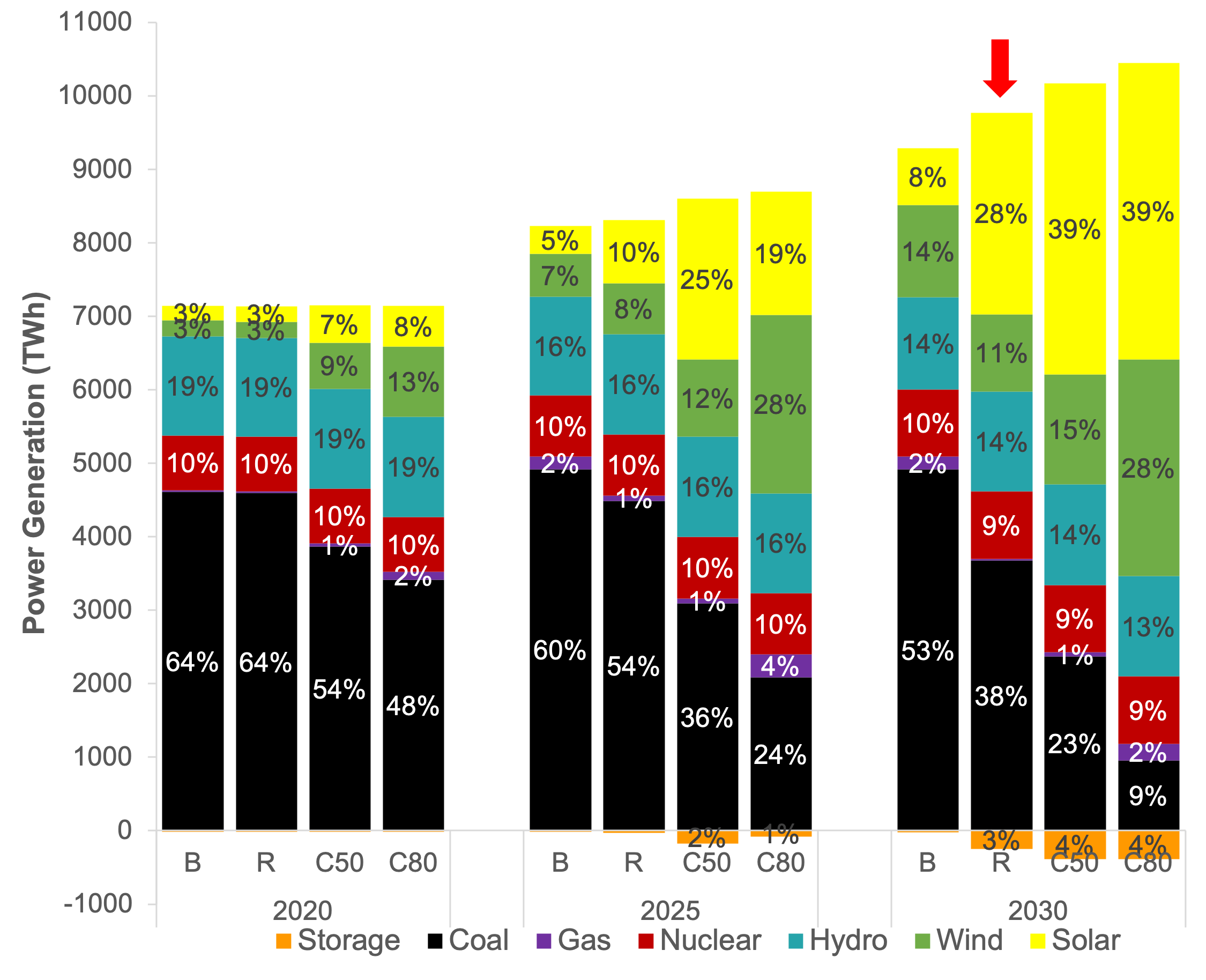
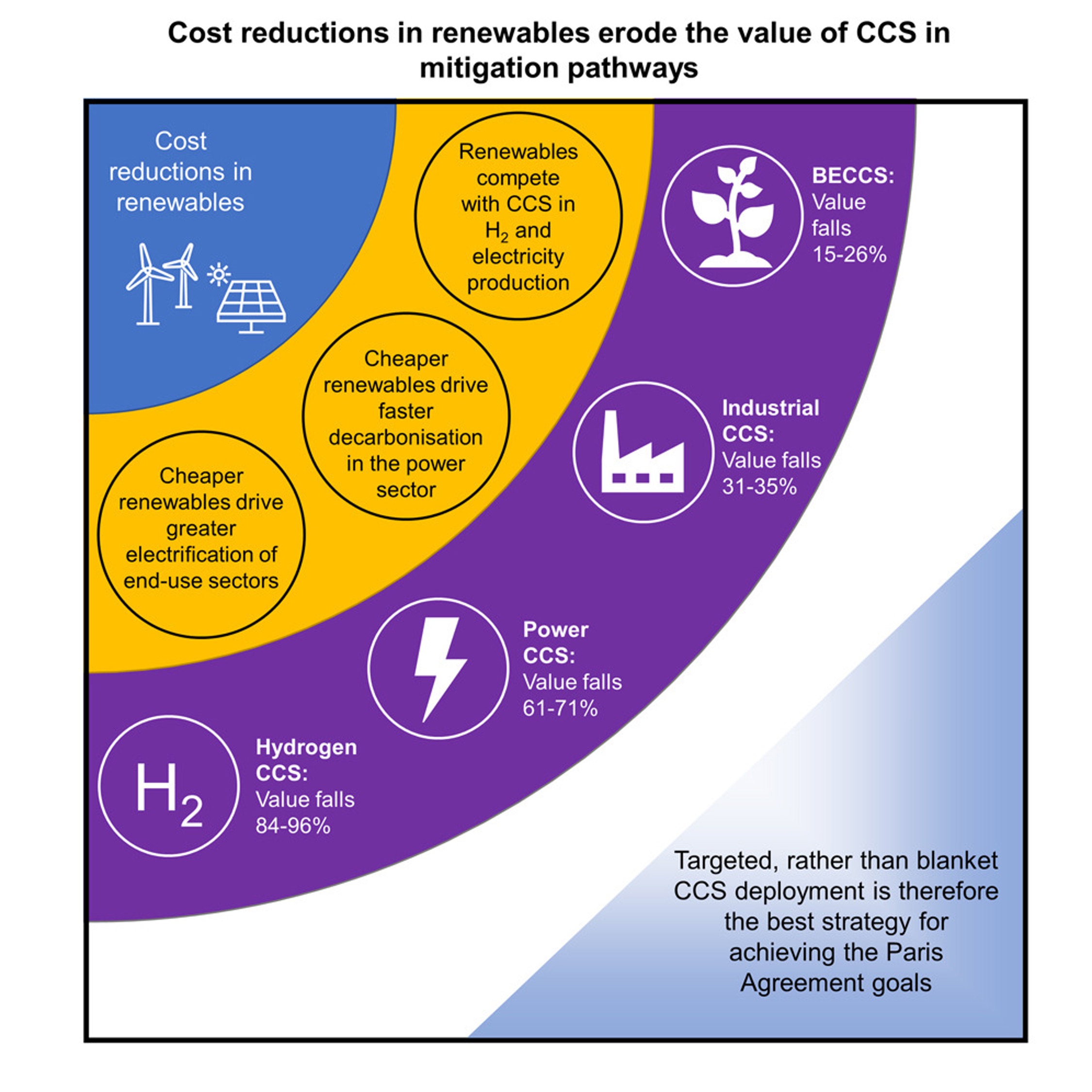
End with two quotes
Bill Hogan:
It is not the individual results of a model that are so important; it is the improved user appreciation of the policy problem that is the greatest contribution of modeling.
Huntington, Weyant, Sweeney “Modeling for insights, not numbers”:
The primary goal of policy modeling should be the insights quantitative models can provide, not the precise-looking projections –i.e. numbers – they can produce for any given scenario.
The Anthropocene
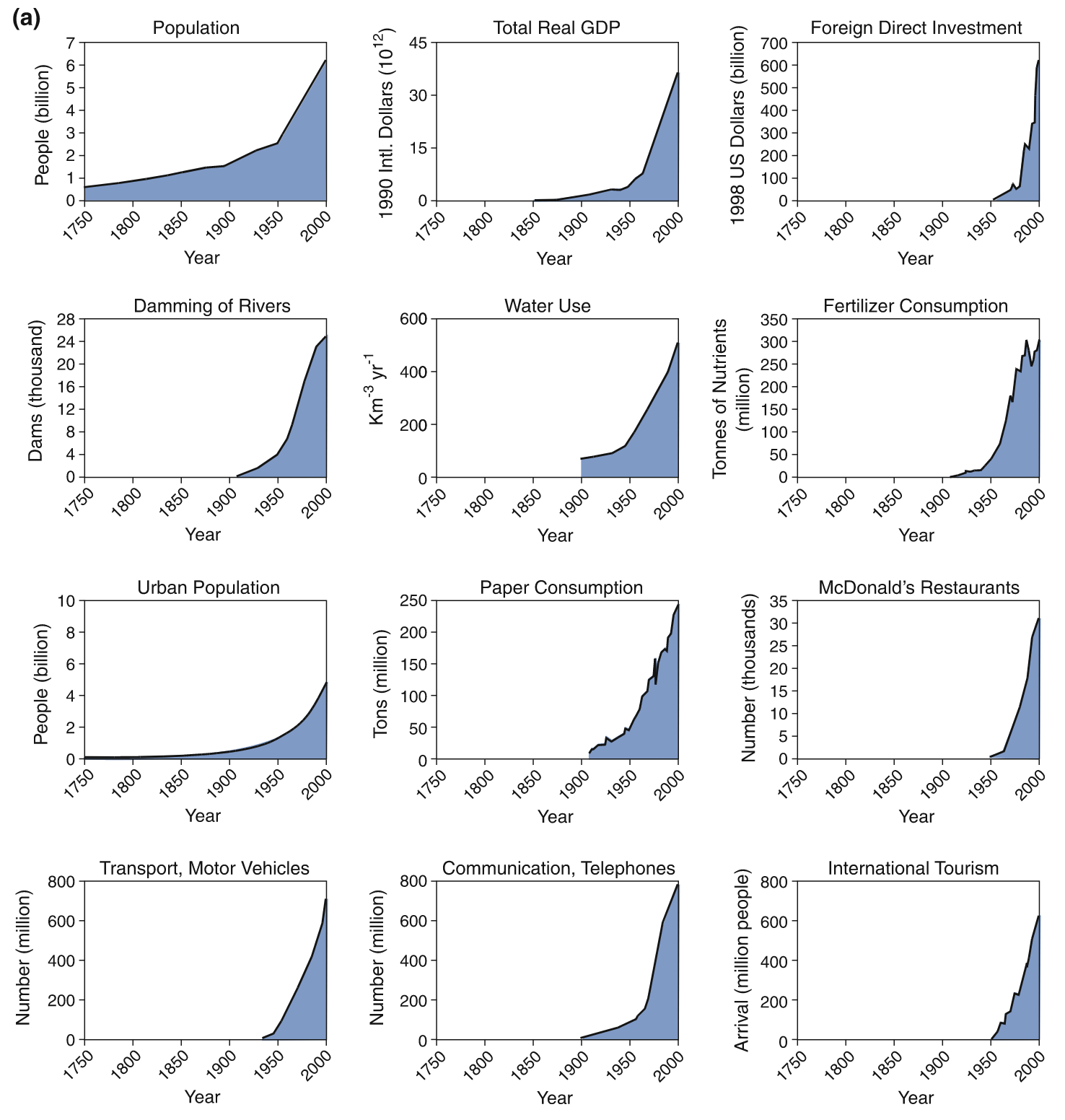
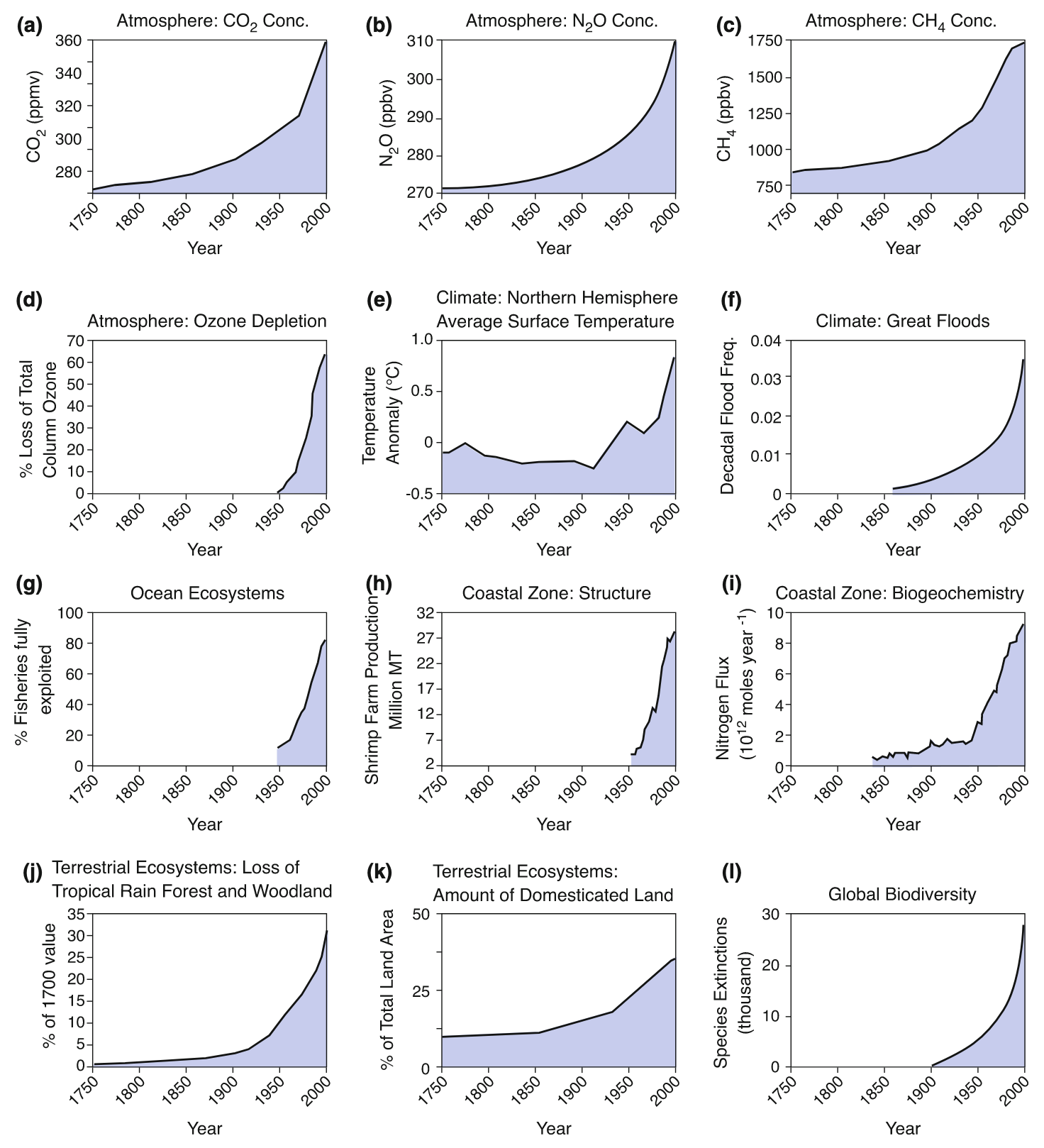
Source: Steffen et al. (2011)
Earth beyond six of nine planetary boundaries
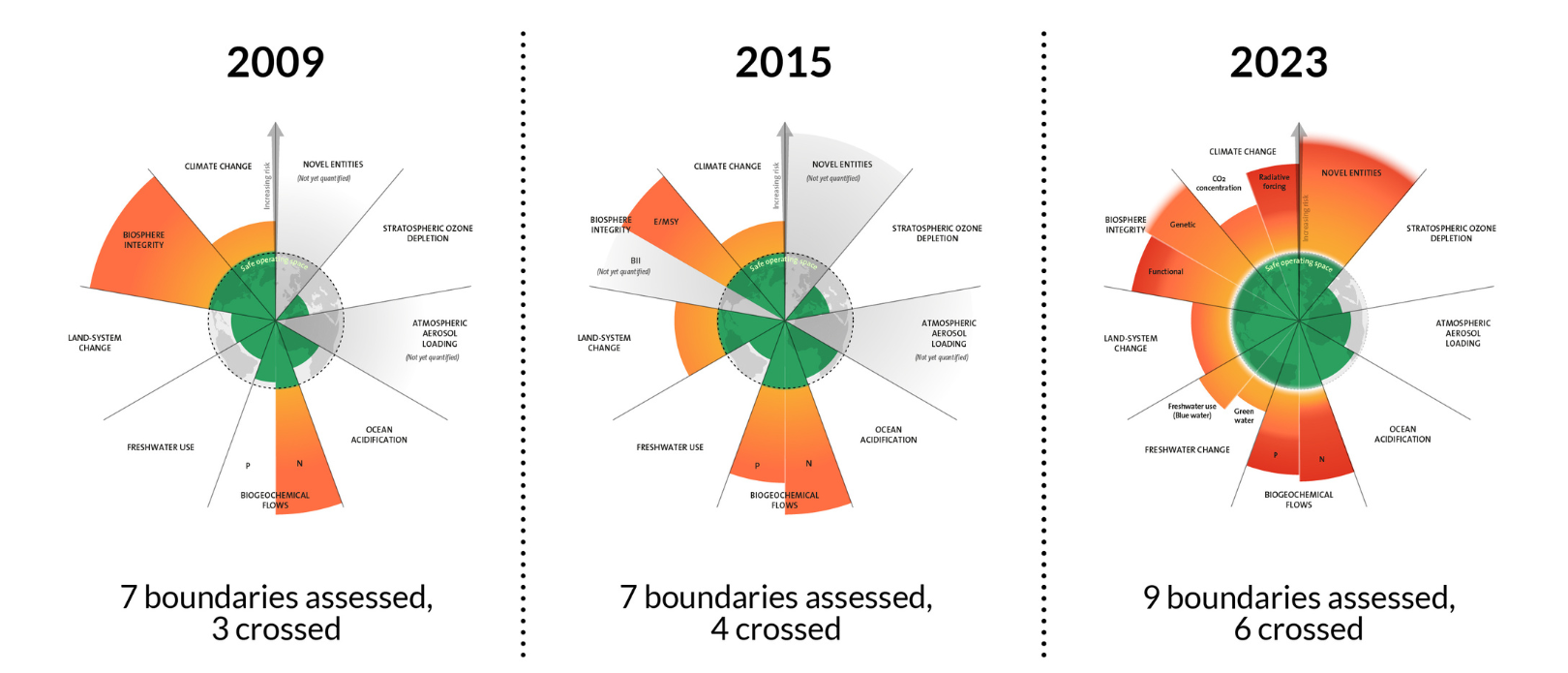
Source: Stockholm Resilience Center; Richardson et al. (2023)